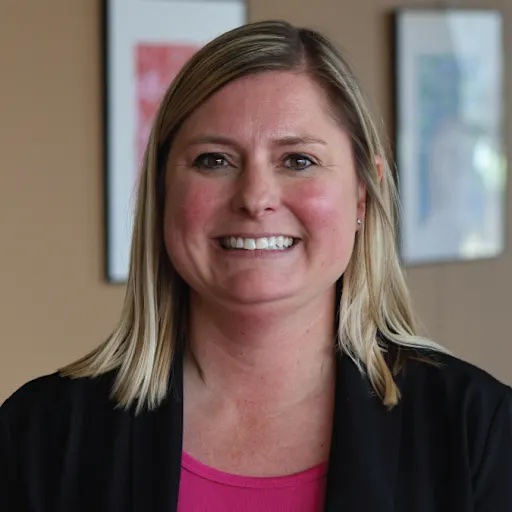Despite some members questioning the need, the Mehlville Board of Education voted 5-2 last week to approve the last alternate — upgraded sound equipment — for the district’s $6 million auditorium.
Board President Mark Stoner and board Secretary Rich Franz were opposed.
The sound equipment — originally projected to cost $71,200 — totaled $66,200 and includes: loudspeakers, $12,800; audio mixing, $11,500; wireless microphones, $11,300; and a telemonitoring system, $30,600. Funding for the sound equipment will come from roughly $18,000 in soil contingency and part of the roughly $250,000 owner contingency.
With the approval of the third alternate, the project retains an owner contingency of roughly $200,000. The first alternates — a connecting corridor and gypsum board — were approved in January.
Stoner said he voted against upgrading the sound equipment because he viewed it “truly” as an alternate.
“I thought it would be best to exercise, I guess, a privilege to say no to some extra monies being spent in that area,” Stoner said. “I still fully support the auditorium. And I fully support what’s going on. I just didn’t view it as an absolute necessity, and short-term or long-term, I think that the system would have been adequate as is — maybe not the Cadillac of the system, but adequate.”
Board Vice President Lori Trakas said the auditorium will be a “great addition” to the district. But she questioned whether spending $66,000 for upgraded sound equipment is really “a necessity” or whether the funds go toward other district needs.
“… One part of our district’s going to get a great benefit of the auditorium, but what about some of the people around the district in other areas?” Trakas asked. “And lastly is it even worth looking at … some of the Prop P items because really that’s where the money came from was the refinance of Prop P. So in good faith, did we do all those facility upgrades for that money, too? …”
Proposition P was a $68 million bond issue voters approved in November 2000 to fund a districtwide building improvement program.
Superintendent Eric Knost said that unlike most construction projects in which the cost is determined first, district officials faced the challenge of constructing the auditorium within the $6 million available from the refinancing of the bond-like Prop P certificates.
“The commitment was to build an auditorium for $6 million. We’re belaboring an issue here. We’re doing that,” Knost said. “We’re doing that with the specs that we originally planned, and right now I feel like smacking myself for ever trying to pull alternate bids out because I’m being punished for it. I’m being punished for staying in budget with a strategy that has worked very well.”
Franz said, “… I feel like in one sense you told us this stuff is adequate and now you’re coming back and you’re saying well, we changed our mind and it’s not. And so ultimately the question I have is, ‘Hmm, who told us in the first place it was adequate? Did somebody lie to us? Did somebody tell us that so we would approve the contract?’ That’s what I’m wondering.”
The lower-grade equipment a 24 channel sound mixer, wired microphones and no telemonitoring system does not, according to Knost, meet the specifications of what the district “felt the auditorium needed.”
“… We are within budget. We are building the auditorium that we said we would from the get-go,” Knost said. “We strategically created alternate bids that would produce acceptable, yet lower-grade situations … But we don’t need to do that.
“We can build it to the full specs within budget, and that’s what we’re doing by adding these alternates on there. It was never a question of whether these alternates were adequate …,” he added.
Board member Elaine Powers said when the board approved the initial bid, the items pulled out as alternates were included in original drawings.
“… It was merely a financial consideration just in case that if there had to be a downgrade, this is where it would be,” Powers said. “… The original drawings show what we are being asked to approve tonight …”
Franz said, “… So someone never intended to install what we originally voted on? Is that what you’re saying?”
Powers said, “No. I am saying this was presented to us fairly and accurately, and you trying to twist it around is inappropriate. Were you not at this meeting when we approved this, Rich?”
Franz said, “Yeah, yeah.”
Powers said, “Do you recall anything about the conversation?”
Franz said, “I think I do, but that’s not what I’m hearing now.”
Powers asked, “What do you recall? What do you recall?”
Franz said, “I recall that we approved the contract with basic equipment for the inside of the building … as set forth in the specifications.”
Powers said, “Do you recall the discussion about the alternates? Did you take a note that said everything in these alternates is shown in the drawings, and it is our intent to do this unless we run into some overruns someplace else. It is our intent to do this right. It is our intent to do this well …”
Franz said, “I do not recall a conversation where we said we intend to upgrade the equipment as specified.”
Powers said, “… The word ‘upgrade,’ I think, is what the confusion is here. It is doing what’s right as opposed to taking the cheap way out.”
Franz later emphasized the connecting corridor, the gypsum board and the sound system being discussed by the board were “alternates.”
“… They’re not required and you’ve already said twice, maybe three times, that what’s specified is adequate. That’s my only point,” he said.
Director of Facilities Steve Habeck said what drove district officials to build the auditorium in the first place was low construction cost, which the district is still experiencing.
“If we look at upgrading two or three years down the road, it’s not out of the question we could pay $90(,000) to $100,000 for the same equipment ..,” Habeck said.
Board member Ron Fedorchak said he wants to complete the auditorium the “right way” and take a “long-term view” on the project.
“The new (auditorium) is going to be the only one in the district. Let’s do it right,” Fedorchak said. “Let’s not look like the boards of the past that didn’t have the foresight to finish a project the right way.”
Additionally, board member Kathleen Eardley said approving the upgraded equipment is a “future cost-savings.”
“You’ve got to look at your long-term strategy,” Eardley said. “We don’t want to come back and have to re-do this in a few years. We want to put something in that’s going to last.”








